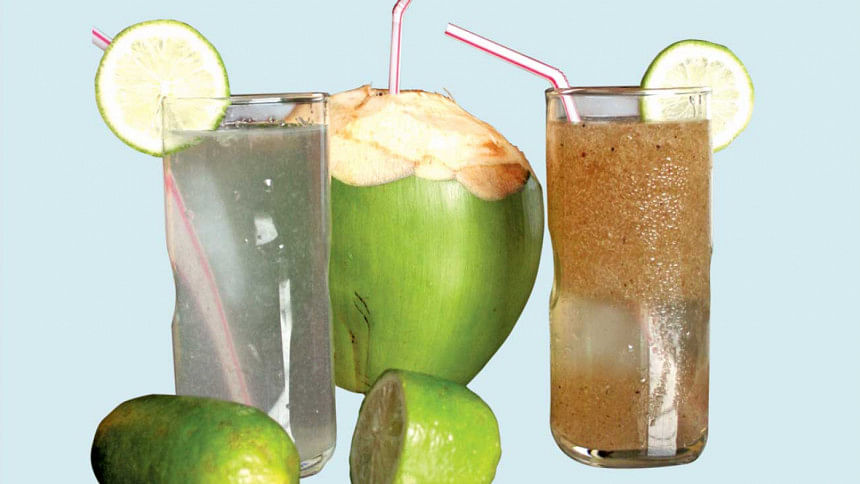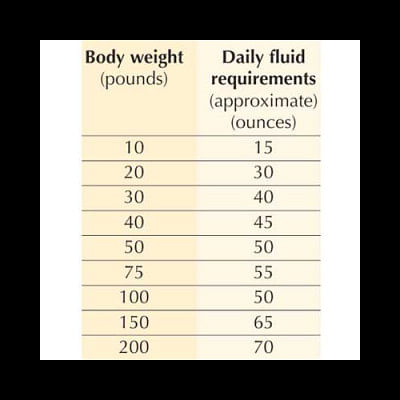DRINK UP!

We often neglect to drink as much water as our bodies require. During the summer months especially, this can lead to de-hydration, if our water intake is less than water loss. The young and the elderly are more susceptible to this condition.
We lose water routinely, when we sweat, breathe (yes we exhale water) and excrete waste. We also lose excessive water when we have diarrhoea, vomit, have diabetes, suffer from burns, or during a menstrual cycle etc. Therefore, it is extremely important to replenish the water we lose by drinking plenty of it. The amount we are required to drink depends on our weight (see table).

Dehydration has several symptoms. The body's initial responses to dehydration are thirst and decreased urine excretion to try to conserve the loss of water. Urine becomes concentrated and yellow in colour. If the loss of water persists, the conditions become more severe and we start to experience dry mouth, tearless eyes, less/no sweat, muscle cramps, nausea and vomiting, heart palpitations, weakness and lightheadedness and an increased heart rate as the body tries to maintain blood pressure and flow to our vital organs.
As dehydration gets more severe these organs will receive less blood flow and weakness and confusion will follow as the brain and other vital organs begin to shut down.
Millions of children die worldwide every year due to de-hydration, therefore this should not be taken lightly. Good ways to avoid it would be to drink plenty of fluids, especially on hot summer days if one plans to spend it under the sun. Any exercise or strenuous work should be limited on very hot days and people should be self aware when playing on the beach, in pools, lakes etc. If any sign of heat exhaustion, rashes, cramps or heat strokes surface, one should seek medical attention immediately. Prevention is the best way to deal with dehydration so make sure to drink plenty of fluids to stay on the safe side!

 For all latest news, follow The Daily Star's Google News channel.
For all latest news, follow The Daily Star's Google News channel. 



Comments